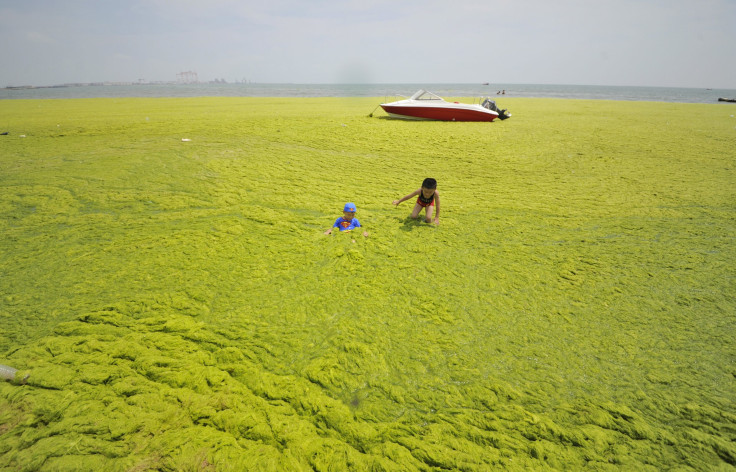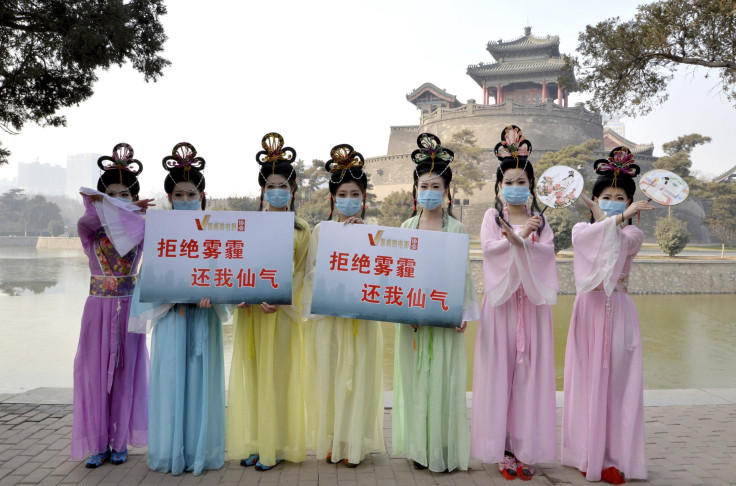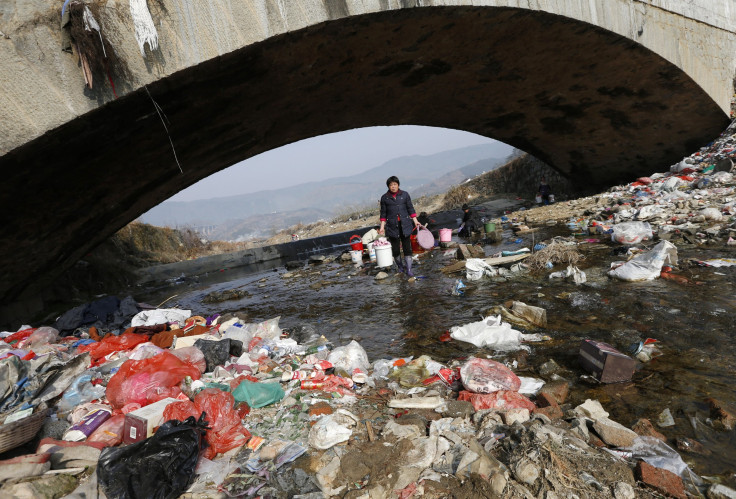China Arrested Over 8,000 People For Environmental Crimes Last Year, In Intensifying Battle Against Severe Pollution

SHANGHAI -- More than 8,000 people were arrested in China for violating environmental laws last year, in what officials said was a sign of the country’s determination to enforce its laws more strictly, in the face of grave pollution.
Chen Jining, China’s recently appointed Minister of Environmental Protection and former Tsinghua University president and environmental scientist, told a meeting of the country’s legislature that some 8,400 people were detained in 2014 -- while more than 2,000 cases of environmental violations were handed over to police, twice as many as in the previous decade put together.
The announcement comes amid growing public concern about environmental pollution in China, crystallized earlier this year with the release of a privately funded documentary on the country’s air pollution problem by former state TV journalist Chai Jing. The film, “Under the Dome,” was watched more than 100 million times in the first three days after its release online, and has sparked an ongoing debate. And the director of China’s National Development and Reform Commission said recently that natural resources and the environment were among the biggest obstacles hindering China’s drive to become a “moderately prosperous society.”
Chen told the legislature that enforcing environmental laws more strictly was key to curbing air pollution, according to the Xinhua news agency. He said that inspections on the ground, and some using drones, had led to the closure of more than 3,000 companies, a similar number of small factories, and 3,700 construction sites in 2014.

Chen added that aside from some $4.1 billion that the government spent on pollution prevention last year, private investment worth 300 billion yuan ($48 billion) also went into the sector. He also said that China planned to reduce the levels of sulphur dioxide and nitrogen oxide in the air by 3 percent and 5 percent respectively this year.
Earlier this year, China passed a new environmental law, with stricter fines for polluters -- and the past few months have already seen record fines for a number of polluting businesses, including a state petroleum giant and a factory supplying food to McDonald’s restaurants in Beijing.
The government has also pledged to spend billions to clean up the country’s polluted water resources, and has proposed a new pollution tax that would levy charges on companies that produce not only air and water pollution, but also noise above a certain level.
The authorities have also promised a particular clean-up of the area in and around the capital city Beijing, which has become notorious for its bad air pollution. The city’s mayor recently acknowledged that environmental problems were making Beijing “unliveable” -- but as Beijing and neighboring Hebei province bid to stage the 2022 Winter Olympics, steps are being taken to improve air quality; one major power plant in the center of the city was closed down in April.

Environment minister Chen said that official measures were having some impact, with pollution readings down in major cities in the first four months of this year, falling the most in Beijing and the surrounding area (though official readings have often been questioned in the past). Xinhua also reported that China’s coal consumption fell last year, for the first time in 15 years, by 2.9 percent, as cleaner energy sources came on-stream. And Chen said 1,000 small coal mines would be closed down this year.
Environmental groups have said that the government does seem to be taking the country’s problems increasingly seriously. Yet issues remain deep-rooted: a government-backed magazine recently reported that tens of millions of people are affected by water containing dangerous levels of fluoride and iodine, for example.
And implementation at the local level remains the biggest problem, with local governments often desperate to boost economic growth and cutting corners on the environment to do so, while some major companies have traditionally felt powerful enough at a local level to defy the law. China's state prosecutors recently admitted that not all cases of environmental violations are handed over to prosecutors as they should be, due to protectionism and favoritism.
However China’s Supreme People’s Procuratorate added that it was launching a campaign to scrutinize law enforcement in such cases, and would also focus on abuses of the environmental impact assessment process. (63 companies involved in risk analysis were recently barred or restricted from bidding for projects after being found to have falsified results.)

And there have been some signs of the Ministry of Environmental Protection cooperating more effectively with other ministries, including the legal authorities: 18 staff of a company that manufactured weed-killer in eastern Zhejiang province were recently jailed, and the company fined around $12 million, for discharging wastewater that severely polluted streams in the area.
And in an attempt to reduce the blind pursuit of economic growth, the government recently said that officials found to have caused environmental damage would be barred from being promoted, and would be "held responsible for their lifetime."
Chen also pledged “more covert inspections” of companies, and heavier penalties for those that “forge pollution data," and stressed that those who neglected their duties or abused their power would be investigated. His comments follow the announcement earlier in June that more than 2,000 officials had been arrested for environmental violations in the previous 16 months.
China is due to deliver its pledge to the United Nations by the end of Tuesday on how much it will cut emissions to fight climate change -- with officials saying Beijing is taking a more responsible role than in the past -- though critics say it could set tougher, faster targets. A recent study by the London School of Economics suggested that China’s emissions could peak by 2025, earlier than the 2030 timeline promised by the government.
However China’s central bank said recently that the country needed investment of $320 billion every year to meet the Environment Protection Ministry's targets for cutting pollution.
© Copyright IBTimes 2024. All rights reserved.





















